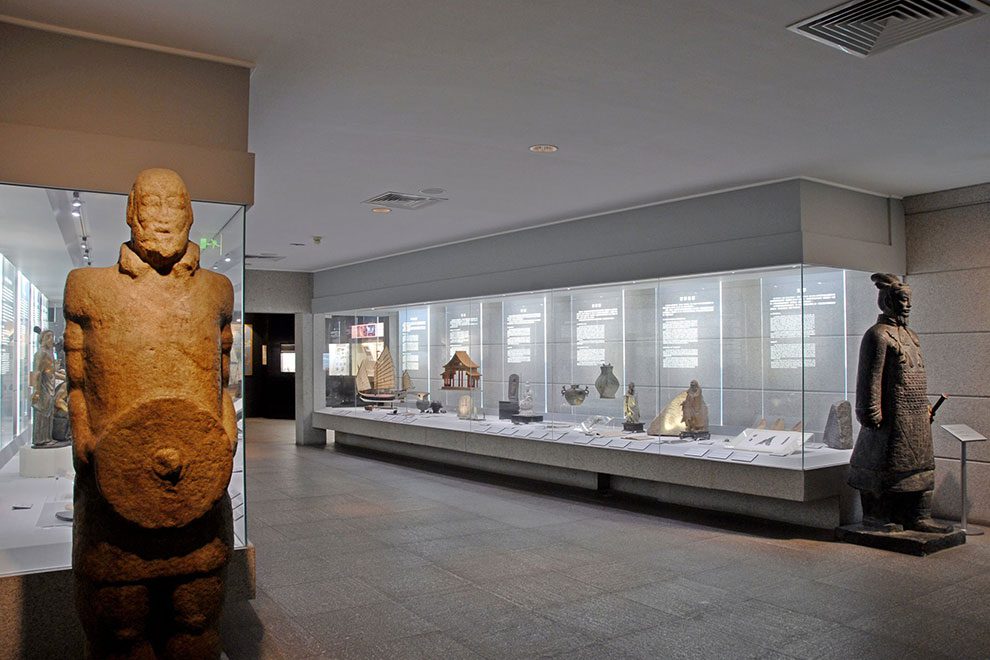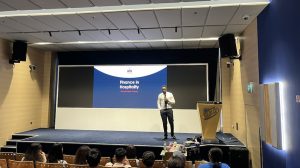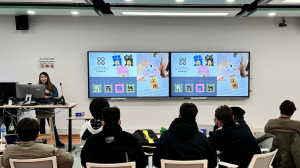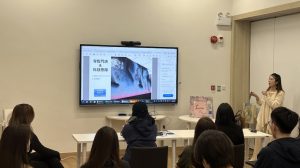It is a cliché to say that words matter. But according to a research paper involving an alumna as well as a scholar from IFT, the truism is worth repeating when analysing the commentaries local museums use to describe exhibits to local and international visitors.
The analysis looked at such narrative materials in, respectively, the Hong Kong Museum of History and the Macao Museum. According to the research study, museum materials are being used as an opportunity to promote a local sense of Chinese national identity in each of the 2 cities, following their respective handover from foreign administration.
“Both museums are part of China’s nation-building projects,” the researchers stated in their paper. “Hong Kong and Macao heritage managers utilise complex transnational memories to (re)construct an identity aligned with, yet distinct from, that of China,” they added.
The comments were featured in the paper “Politics of memories: Identity construction in museums”, produced by 4 international researchers, including IFT alumna Dr. Carol Zhang – now a scholar at the University of Portsmouth in the United Kingdom – and IFT scholar Dr. Jack Ly. The work was published last year in the academic journal Annals of Tourism Research.
The study adopted critical discourse analysis, which involved narratives from various sources. Descriptive texts relating to exhibits – narratives in Chinese and English – featured respectively in the Hong Kong Museum of History and the Macao Museum were included. The materials were collected over a number of site visits between 2014 and 2017.
Researchers also participated in guided tours to each of the museums and made reference to promotional information available online and offline. In addition, they reviewed visitor-generated comments about the 2 museums posted to popular online travel forums. Researchers also conducted what they termed in-depth interviews with cultural experts to gain insights into the production and construction of museum exhibitions.
Hong Kong and Macao are 2 Special Administrative Regions (SARs) of the People’s Republic of China. The former was under British rule from 1841 to 1997, when it was handed over to China. Macao was administered by Portugal for more than 4 centuries, until 1999, when it returned to Chinese control.
National identity, defined locally
According to the researchers, the handover of Hong Kong and Macao to China subsequently influenced the respective identity of each city, making such identity “extremely ambiguous” due to a juxtaposition of European- and Chinese-related elements. In this context, the Hong Kong Museum of History and the Macao Museum both “share the goal of exhibiting the complex history of the SARs to signify that they are no longer colonies but part of the People’s Republic of China,” the scholars highlighted.
The post-handover authorities’ focus on “re-imagining [the] Chineseness” of Hong Kong and Macao was obvious in exhibits available at the 2 museums, wrote the researchers. Such focus included a recurrent highlighting of links with ancient and contemporary Chinese history. This provided people in Hong Kong and Macao with the opportunity – based upon evidence and precedent – to identify clearly with a sense of Chinese nationality.
The researchers said their study demonstrated that “museums in the postcolonial context” aimed to construct “relatively harmonious” narratives about Chinese-foreigner interaction locally during the periods of foreign administration in the 2 cities, namely by excluding references to “conflictual events”.
They noted that museums in general are “sites that offer or highlight specific, selective discourses about identities.” Such institutions thus “have profound power” to shape the way in which postcolonial societies define the “legitimacy of their ancestry,” namely by selecting “what to remember and what to forget”.
The team of researchers pointed out in their paper that “heritage tourism is an integral part of nationhood in which people experience and develop a sense of belonging through imagining the collective ancestry.” Therefore, to create a “common” sense of remembered identity, “heritage often acts as a symbolic evidence to reproduce and communicate the preferred version of the past over and across generations”.
More info
Hong Kong Polytechnic University Associate Professor Dr. Xiao Honggen specialises in tourism-related research. He holds a PhD in recreation and leisure studies from the University of Waterloo, in Ontario, Canada. His work and research experience include spells in academic institutions in Canada, Mainland China and Japan prior to moving to Hong Kong.
Dr. Nigel Morgan is a Professor at the University of Swansea in the U.K., where he heads the School of Hospitality and Tourism Management. His research areas include destination development and management, and place marketing. Dr. Morgan has a PhD from the University of Exeter in the U.K.
Dr. Jack Ly – also known as Dr. Tuan Phong Ly – is a Visiting Assistant Professor at IFT. He holds a PhD from the Hong Kong Polytechnic University; his research interests include ecotourism, national park model management, cultural heritage management, tourism development in South East Asia and museum development. He teaches tourism management and culture-related subjects in IFT.
https://doi.org/10.1016/j.annals.2018.09.011









